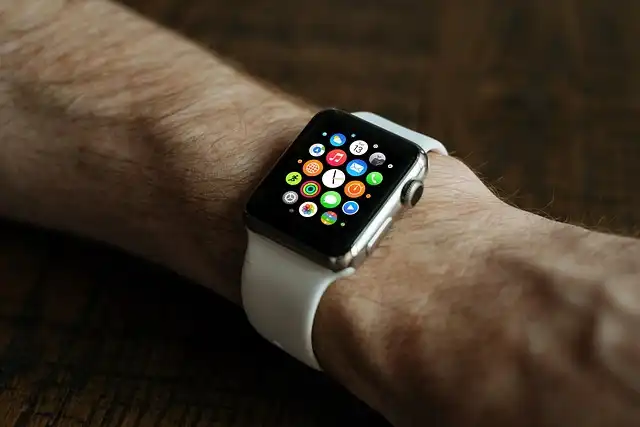Sustainable Fashion: Startups, Innovation & Material Science

Discover innovative startups tackling fashion's sustainability challenges. From bio-based polyurethane alternatives to AI-powered textile recycling, these companies are driving impactful change.
Matereal is dealing with one of style’s most pervasive, yet commonly overlooked, issues: polyurethane. Creator and CEO Jacqueline Ros Amable says Matereal has actually established a bio-based option to polyurethane, called Polaris. Making use of a mix of plants, recycled monomers and carbon discharges, it mirrors the buildings of polyurethane without one of the most toxic, petrochemical-based element, isocyanate. Its existing model– the firm will certainly remain to create different types– takes the shape of thermoplastic chips, which can be made use of in coatings, films, lamination and injection moulding. An independent life cycle analysis found Polaris to be a million times much less poisonous than conventional polyurethane, using 50 per cent much less carbon.
Matereal’s Bio-Based Polyurethane Alternative
Locating the start-ups with the most prospective for lasting change is no easy task. This year’s court included elderly executives from sustainability system Style Forever, research study centre MIT Climate Grand Challenges, brands Ralph Lauren and Zalando, and award co-creators GFA and PDS Ventures. They evaluated candidates versus 5 standards: relevance to key sustainability obstacles, possible to develop positive social or ecological impact, cutting-edge or disruptive thinking, feasibility, and possible to scale.
Innovator Award’s Selection Criteria
By the end of this year, the goal is to create 200 kgs, at some point scaling up to be a plug-and-play service that can slot right into existing production lines. If Matereal can reach that range– which would take considerable financial investment and widespread buy-in from brands– it will be “price affordable”, resting at the upper end of conventional polyurethane and at the lower end of bio-based choices.
“It has actually been truly energising to see the energy building worldwide,” says Marchionni. The secret currently is to aid them scale.”
Plenty of startups have promised to revolutionise the fashion business, but couple of have managed to appear, and also fewer have actually managed to achieve adjustment at range. So what does it take? And just how do you identify the startups with the most potential?
MannyAI: On-Demand Production Solutions
MannyAI is attempting to deal with numerous problems simultaneously, with completion goal of making it possible for on-demand production for brand names and producers. Its proprietary system gathers real-time data from makers at Rate 1 and Rate 2, concentrating on textile availability, machinist capacity and provider capacities. This permits brands to see which manufacturing facilities and material mills have capability for quick turn-around orders, possibly opening on-demand manufacturing, minimizing overflow and enabling brands to react quicker to trends.
Refiberd: AI for Textile Recycling
Doing this with a high degree of accuracy is an uphill struggle, which is why Refiberd has actually been focusing on running pilot programmes– it has 12 under its belt to day– and partnering with brands and suppliers to train the AI. “When you check out fabrics today, everything is a complex mix,” states Bajaj. “After that there are finishings and dyes on top, that makes it really testing to recognize the base material. We have invested the last four years processing over 100,000 fabric examples to cleanse the data and show our idea. Now it’s time to push out and integrate our service into round procedures.”
The return is service-level agreements (SHANTY TOWN) with companion brands, which permits providers to forecast and intend far better, because they know just how much ability they will require to designate for each brand name in breakthrough, and there is a commitment to back up any kind of extra financial investment in personnel or equipment. It conserves time for brands, too. “The issue with on-demand production is that you go from four collections per year to 52 or also a lot more, which develops a lot even more job for your group,” states Grover.
The jury was additionally looking for owners who might deal with the stress of running a bigger company better later on, includes Pallak Seth, owner and executive vice chairman at PDS Team. “The ability required to go from absolutely no to ‘X’ is one thing, however then you have to have the ability to put an appropriate administration framework in position and have the data transfer to handle groups, while keeping an eye on the numbers and offering the best leadership.”
“I call polyurethane the scary plastic, because it’s definitely all over in fashion,” states Ros Amable. “The possibilities are that the majority of natural leather– whether it’s genuine or made from pineapple– is coated in polyurethane. When you color fabrics, you usually soak them in a polyurethane bathroom. When you have bags, shoes and layers containing PFAS (also called “forever chemicals”), the other side of that is usually a polyurethane membrane. It’s made use of so much more than individuals know.”
MannyAI is attempting to tackle multiple problems at when, with the end goal of making it possible for on-demand manufacturing for manufacturers and brand names. The market is getting a lot more and a lot more fragmented, and brand names do not always recognize what is going to sell that much in advance,” claims CEO and co-founder Shruti Grover. The return is service-level arrangements (SHANTY TOWN) with partner brands, which permits providers to anticipate and plan better, since they know just how much capacity they will require to allocate for each brand in breakthrough, and there is a dedication to back up any kind of added financial investment in team or equipment.
The prospective applications are manifold, proceeds Bajaj. “Every recycler requires to recognize the product content of textiles to have any type of degree of effectiveness, yet we also see resale as an arising market. Can we determine fakes using product analysis? And with electronic product tickets [DPPs], can we make use of material analysis to confirm information at various phases of the supply chain?” She says Refiberd could conserve a fabric recycler arranging 50,000 tonnes each year up to $7.5 million, by minimizing the amount of uncategorised waste discarded (thinking the cost of one squandered garment is around $3).
At such an early stage, creators are the most essential metric, states Ankur Agarwal, head of endeavor resources investments at PDS Ventures. Agarwal claims.
Challenges and Scaling Sustainability
Whether remedies work at range depends heavily on just how well the wider industry supports them. In spite of attracting tens of millions of bucks in financing, more mature remedies like Renewcell and Stella McCartney-backed leather alternative Mylo have failed, with brand names falling short to stump up sufficient orders and offtake arrangements.
That’s why the honor brings brand names, stores and academics into the court, says Seth. “We are attempting to produce an ecosystem around the startups, so there are the financiers who money it, the stores who back it, the manufacturers who make use of the innovation, and the endeavor plutocrats that obtain the emphasis.
“For a long period of time, it has been more affordable to acquire larger quantities with longer lead times. The market is getting more and a lot more fragmented, and brands don’t constantly know what is going to market that far in breakthrough,” states CEO and co-founder Shruti Grover. “Typically, on-demand manufacturing has been restricted to pietistic merchandising– printing on an existing garment or a blank [pre-made garments sold to brand names and producers without any branding or designs] For brand names to actually fracture it, it requires to be possible on any type of garment, at chosen mills and manufacturing facilities that they have existing partnerships with.”
The Innovator Award: Fostering Sustainable Solutions
Several sustainability experts are pinning their hopes on round fashion to decouple monetary development from material source usage, yet there is an expanding tension at the heart of round style systems, which is becoming significantly difficult to ignore. In order to reuse textiles at range, you need to understand what they are made from, and you require to be able to sort them promptly– which is where Refiberd can be found in. The firm has actually developed an AI remedy that utilizes hyperspectral imaging to determine the product composition of a garment. Co-founder and chief executive officer Sarika Bajaj states this can help resolve the existing dilemma in textile recycling, which has seen several high-profile sorters shutter, overwhelmed by the influx of low-grade (and usually combined) garments.
These concerns are the core of the Innovator Award from charitable Worldwide Style Schedule (GFA) and PDS Ventures, the investment arm of manufacturing and sourcing system PDS Team. Now in its second year, the honor seeks to increase sustainability at range. The victor obtains a $200,000 investment, access to functional and industrial support from PDS Group’s Favorable Materials subsidiary, and scaling opportunities with fellow participants of the PDS Team profile, as well as mentoring from inaugural champion Flower Labs.
Matereal has actually established an artificial intelligence-powered device that can produce customized solutions, tailored to details supply chains and effect objectives, infiltrating hundreds of prospective formulas and makes use of to find the most effective one for each customer in a matter of mins. “The long-lasting vision is to make use of the AI platform to translate our solutions into a language that designers recognize, referencing things like hand feel and tensile stamina,” discusses Ros Amable.
That’s why the award brings brand names, merchants and academics right into the jury, claims Seth. If Matereal can reach that range– which would certainly take substantial investment and widespread buy-in from brand names– it will be “rate affordable”, resting at the upper end of conventional polyurethane and at the lower end of bio-based alternatives.
Last year, the finalists altered greatly in the direction of products scientific research, which made it tougher to judge. Vogue Business caught up with all three to listen to just how they intend to take on the sector’s mounting challenges.
1 AI search2 material science
3 recycling
4 startups
5 sustainable fashion
6 textile industry
« Ulta Beauty: Strong Q1 2025, ‘Released’ Strategy & Future OutlookChipotle’s Marketing Strategy: Staying True to Values »
